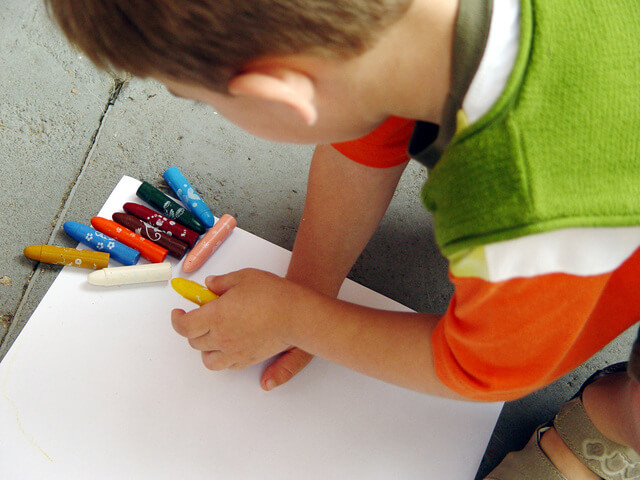The transition to middle school can be tough. Many kids change schools, some to a private school with higher demands and expectations. Even if your child isn’t switching schools, chances are the educational setting changes drastically once they reach 6th grade. Kids switch from having one classroom teacher to several, they often receive letter grades for the first time in their lives, and social pressures and dynamics begin to change. Add puberty and hormonal changes to the mix and things at home can suddenly feel incredibly different than ever before.
As kids get closer to high school, they need to be more independent, organized, and self-sufficient. Weekly tutoring sessions are a great start to supporting your child, but there are many ways you can extend the academic support at home!
1. Give Them Space to Study
Literally and figuratively! We do this all the time in session: we have quiet spaces dedicated to studying, and tutors are regularly pushing students to try things on their own. Find a place in your home where they can go to have a quiet, distraction-free space. Often, kids’ rooms are too distracting or comfortable. The kitchen counter, a home office, or even a table in the garage are all great places. Try to pick a room without a tv, and with ample lighting and tablespace. Then, give them space to study. Let them try to do things on their own without prodding and nagging. You can read more about our approach to study skills here.
2. Push for Independence
Often when we give kids space to do things on their own, they don’t. It can feel scary, but allowing students to fail in a safe space (like academia) teaches them about natural consequences and independence. If we constantly swoop in to save them, they won’t learn to do it themselves. In session we ask leading questions to try to guide students to the answers, without giving it away. This starts to create a script in their heads and they start to replicate it outside of session!
We also show them what resources to use and how to use them; it’s incredibly beneficial to let them practice this on their own. We are constantly trying new systems and it’s important that kids test things out themselves so they know what does and doesn’t work for them.
Finally, encourage your student to communicate with his, her, or their teacher. Self-advocacy is difficult and it can be intimidating to ask for help, but it’s a great habit to learn early!

3. Be Patient
Transitioning to middle school is a lot like changing jobs; there’s a pretty big learning curve and it can be really intimidating. They need to learn what each teacher prefers, they need to find a way to balance several classes with extra curriculars and a social life, they need to keep track of tests and assignments, and, for many kids, this is the first big change in their lives. Adjusting takes time. It’s important to be patient while they navigate the new systems and increased demands.
4. Build a Team Around Your Child
As much as we want to push kids to be more independent in middle school, we also want to make sure they feel well supported. Coaches, teachers, counselors, parents, and tutors all have the same objective: help children succeed. Keep lines of communication open, and try to work with the other adult figures rather than against them.
For instance, we regularly hear kids say, “My teacher just hates me,” or parents, “Unfortunately we got stuck with a pretty bad math teacher this year.” While that may be the case, it’s important to try to work together as much as possible. Working with someone they don’t particularly enjoy is something that kids will continue to experience well into adulthood–we’ve all had bosses or coworkers we don’t like, but we have to make it work. Rather than commiserate with your child about the quality of their teachers, help them learn what the teacher wants or expects and help them achieve it.
If you’d like to discuss the specific needs that your student has and how we can help, please give us a call today!

